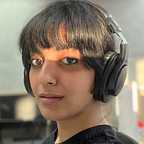Anti-caste on Instagram?
This piece is a reflection on the method by which I adopt (or rather, don’t adopt) an anti-caste stance on digital platforms. I refrain from posting this on Instagram for reasons that will make themselves clear in the paragraphs below.
Over the last two years, I’ve felt a sense of uneasiness in proclaiming anti-caste allyship as a woman from a dominant caste on social media.
I am anti-caste in whatever way all of us aspire to be anti-caste — in the way that one reads, learns, and has conversations about one’s own social positioning with friends from varying social locations. I come from a family that is purposefully anti-caste (in keeping with the teachings of Sikhism), and have been brought up with the view that any caste-identifying rituals and surnames must be dropped.
I use the word aspire above because adopting this term as a public proclamation has become an aspiration for those of us who gain clear cut social privileges from positioning ourselves as progressive on social media platforms.
- Firstly, my uneasiness stems from the fact that my identity is so deeply entrenched in my dominant caste location that I cannot truly fathom the sinister ways in which it creeps into my life, my language, and my behaviour.
One time when I was 9 years old, maybe 10, I was having lunch at a restaurant outside a Gurudwara with my parents. The menu had (at the time) funny spelling errors and so I pointed at them and laughed. My mother snapped at me and said — “that is classist, don’t do that again”. I remember the painful clarity of that moment — the realisation that I had such little knowledge of what is right and wrong, and why it is right or wrong. I think that even today, for all of my ‘learning’, my privileges still allow me to be that 9 or 10 year old — the one that is so shielded from multitudes of discrimination that she doesn’t even know how or why they exist.
Of course, as a 22 year old there are checklists that I seek to follow: Treat everyone equally. Pass the mic. Read Ambedkar and Periyar and Valmiki and Roundtable. Follow Dalit and Bahujan intellectuals on social media and consume their work. Stop participating in Brahmanical-origin festivals and rituals. Introspect. Unlearn. Unlearn. Unlearn.
But what then? Surely that to-do is not all it takes to ‘unlearn’ centuries of power-drunkenness, of violence, of systemic harms? And if I don’t even know the ways in which my caste location influences the way I navigate the world, how can I suddenly become anti-caste?
- Secondly, I ask myself — what does it mean to be anti-caste in ‘practice’?
Am I politically organising my dominant caste friends to fight against the inequalities that benefit us? No.
Does my work, specifically within my niche, constantly center experiences of people from oppressed castes? No.
Do my social circles include more people from oppressed castes than they do from dominant castes? No.
Do I view romance and intimacy with people in my immediate circles the same as with the oppressed caste man who shows up in photography catalogues, relegated to the aesthetic of the ‘poor and downtrodden’? No.
There are endless Nos and few Yeses. And I want to stress that this is not unique to me — this is the life experience of most dominant caste friends. No matter their flavour of anti-caste allyship.
So again, I ask, how can I publicly proclaim anti-caste allyship as central to my work, my politics, and my identity, when it is not central to my practice?
- Social media culture hinders tangible work.
It is my understanding that with discourses shifting, dominant caste social media users feel shame for not being ‘anti-caste’, and rush to proclaim allyship. This rushing is a dangerous thing — it offers hefty language with little substance behind it. It co-opts, it turns the greatest inequality of our times into a malleable brand-tag, it increases our own ‘clout’. This is to say that even the politics that necessarily requires us to betray our backgrounds, to be discomforted, and to cause us to level the playing field by bringing ourselves off mountains of generational power, ultimately benefits us.
Is that allyship, or is that betrayal? It is certainly not subversion. It is not change. On platforms that are designed to uphold inequalities, it is exactly what maintains the status quo.
Further, why do we escape the shame by participating in such quick-fixes? Is this shame not ours to feel? Are we not causing great suspicion and discomfort among loved ones who are Dalit and Bahujan, who now don’t know who is really ‘putting in the work’ and who is simply seeking to escape the shame?
We must have great audacity to “teach” our fellow dominant caste friends and followers how to be anti-caste, to authoritatively give prescriptions on how to be a better ally, when we have neither introspected deeply enough nor ‘put in the work’ in a way that is meaningful and tangible in our own, immediate lives.
If anything, doing this and gaining algorithm points only expands the realms of Savarna mediocrity, placing our own narratives over those of our Dalit and Bahujan friends and leaders.
I really don’t want to offer suggestions and advice to anyone because for the above stated reason, I wish first for my own anti-caste allyship and the tangible work it eventually culminates in to be more introspective. But the takeaway for myself is that there is a lot more to be done. And I will have to strive to do it better, and more meaningfully.
